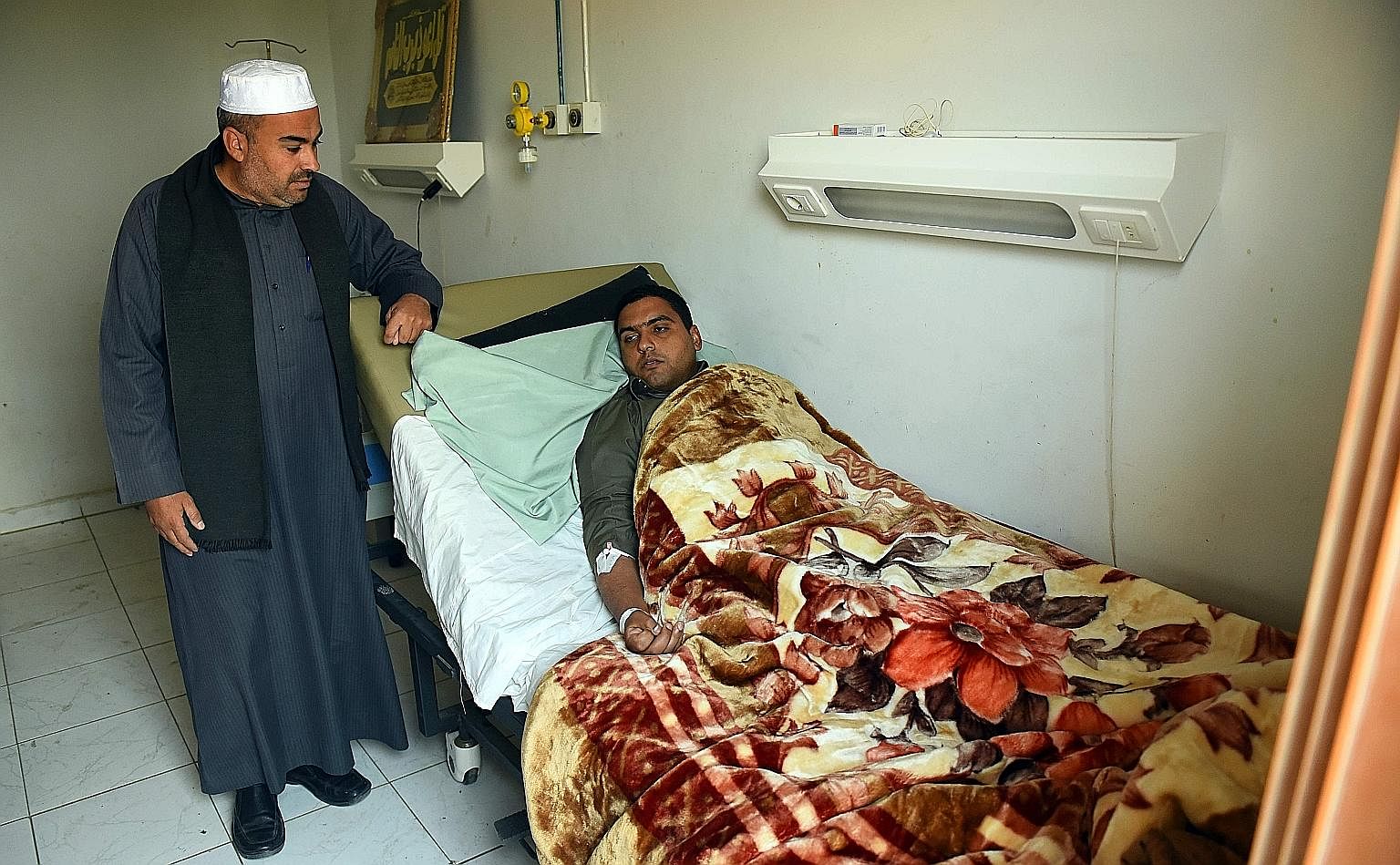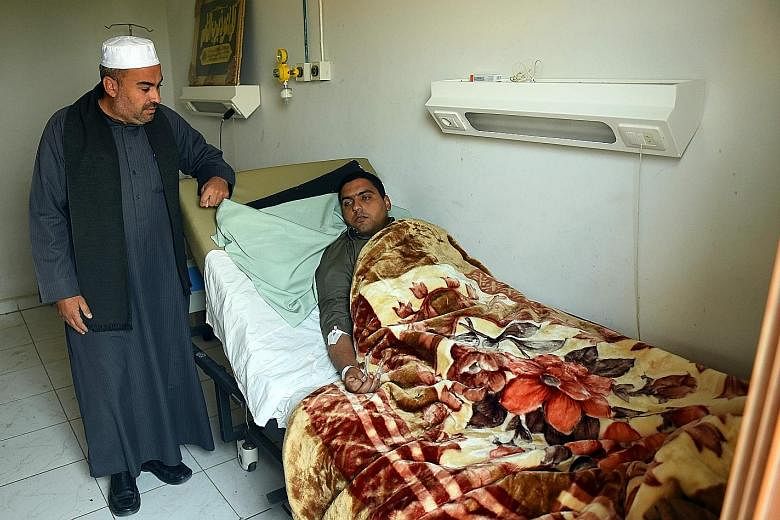TEL AVIV • After the bloodiest terror attack in Egypt's history, President Abdel Fatah al-Sisi has vowed to exact revenge with "brute force". That should worry even his backers, as this very strategy has led the country into its current crisis.
Friday's terror attack on a mosque in Bir al-Abed, a small town near Sinai's provincial capital al-Arish, has shocked even Egypt's most cold-blooded analysts.
Up to 30 armed fighters, presumably part of a local affiliate of the terror group Islamic State in Iraq and Syria (ISIS), entered the city unchallenged and set up an ambush around the al-Rawadi Mosque. They apparently sent in a suicide bomber and later sprayed the fleeing masses with gunfire, killing more than 300 people.
President Sisi went on air shortly afterwards and vowed to exact revenge. "The armed forces and the police will avenge our martyrs and restore security and stability with the utmost force," he said. Egyptians would become stronger after this event, he declared, "and more united".
Only hours later, Egypt's air force claimed to have killed 30 terrorists in air strikes in Sinai. Pro-government media celebrated that as evidence of the success of the new promised offensive. That joy, however, could be premature.
Waging an onslaught against militants in Sinai is nothing new. The massacre in Bir al-Abed may have been especially savage, but it was not Egypt's first terror attack. Since 2013, when Mr Sisi toppled the democratically elected government of the Muslim Brotherhood in a bloody coup, Islamists have staged a violent insurgency in the peninsula.
They have killed hundreds of soldiers, police officers, judges and civilians. An incomplete list of their more brazen strikes in recent months shows their fight is hardly abating: On Oct 16, six soldiers were killed in an army post in Sheikh Zuweid. In July, an attack killed 26 soldiers in an outpost near Rafah. These are only the larger incidents. Clashes killing one or two soldiers have long since become a weekly occurrence. After every larger attack, Mr Sisi vows an even harsher response and promises victory.

However, it seems hard to imagine any more "brute force" applied. The military has used almost all the equipment at its disposal, including heavy battle tanks, attack helicopters, drones and fighter planes.
The military says on its Facebook page that it has killed 3,000 militants. But it is doubtful if all those killed were armed insurgents. The army has erased entire villages and bulldozed parts of the city of Rafah. Soldiers have been implicated in summary executions.
Mr Sisi's biggest failure, however, is that he stands to lose a much more important fight: The battle for his people's hearts and minds. He became President several years ago by promising security, stability and prosperity. None of that is materialising. While investing much in the army, he has not addressed Egypt's lack of education, economic opportunities and healthcare.
To avoid bankruptcy, the President steers a harsh economic course, cutting subsidies and raising taxes. The percentage of Egyptians living below the poverty line rose to 27.8 per cent in 2015 from 26.3 per cent in 2012. To stifle dissent, he has banned public protests, muzzled the media and arrested thousands of political adversaries.
Instead of stability, that has brought Egypt more insecurity.
Terror attacks have spread to the mainland.Hundreds of Egyptians who fought in the ranks of ISIS could bring their battle experience and ideology back home. More attacks are bound to follow. After the massacre, Egyptians want to unite. In the long run, however, they will resent losing the last vestiges of their freedom and growing poorer while Mr Sisi seems unable to deliver the stability he promised.

